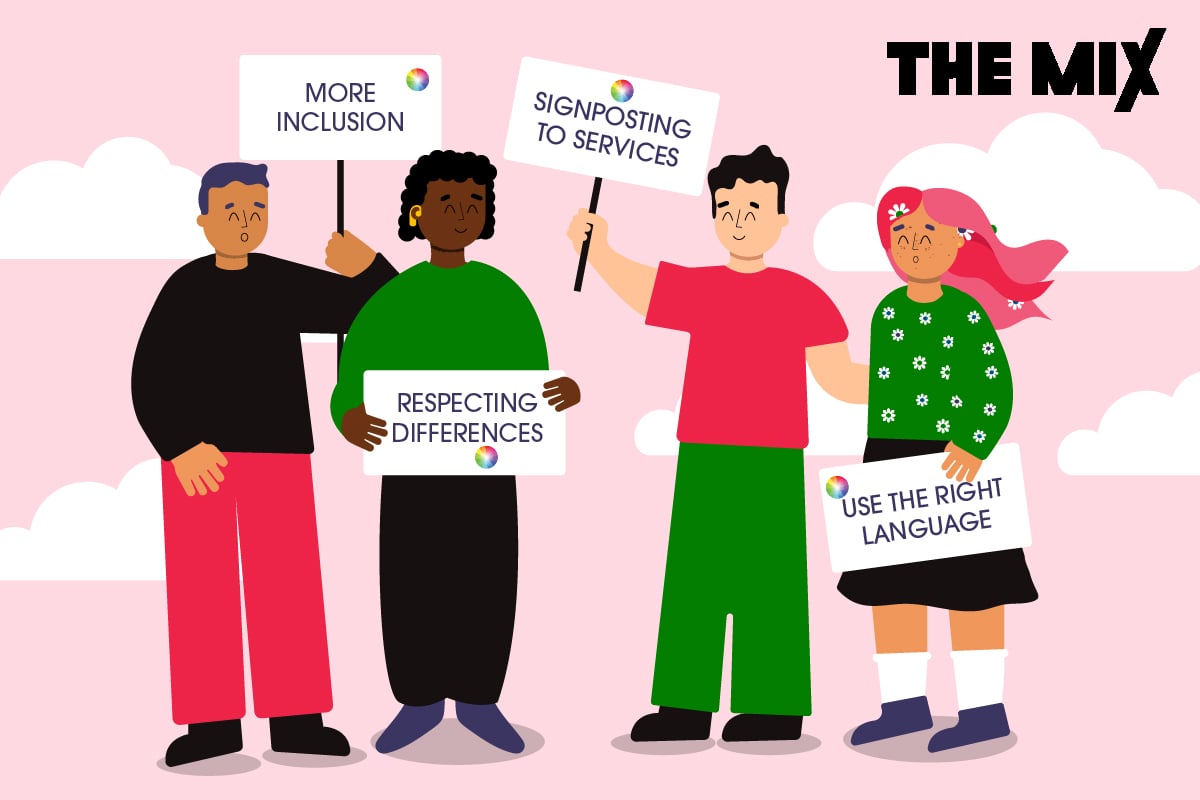What is autism?
Autism is a lifelong developmental difference which affects the way people interact with the world. For some autistic people, the world can feel overwhelming or confusing. But with the right support, every autistic person can live a happy, meaningful life.

What is autism?
Put simply, the brains of autistic people are neurodivergent and work in different ways to people without it. It affects how people communicate, socialise and make sense of the world. This can make day-to-day life quite challenging. But while autism comes with its challenges, it also comes with its positives. Depending on the individual, this could mean being especially passionate about something, having great compassion for other people and animals or having a strong sense of what’s right and wrong. At the end of the day, autism should be seen as a difference, not a disadvantage.
Autism is different for everyone
Like all people, the experiences of autistic people vary a lot. You may have heard people use the term ‘spectrum’ – this basically refers to the range of experiences autistic people have (although some prefer to refer to it as a circle). For example, some autistic people will have high support needs – they may be non-verbal, meaning they don’t speak, but they may also be unfazed by new experiences or meeting new people. Other people will be entirely independent – they might be doing particularly well at school or work but may struggle with social situations and making friends.
What are the signs of autism?
As you can see, there’s no ‘one size fits all’ with autism, so signs of autism will be different depending on the person. Autism symptoms in adults may be different from teenagers too, but having said that, there are a few things that are commonly experienced by autistic people. For example:
- Finding it difficult to communicate and interact with other people. This can include finding it hard to read body language or facial expressions or finding it generally difficult to know how other people are feeling. This can make social situations stressful or uncomfortable.
- Repetitive or restrictive behaviour. Autistic people sometimes have highly focused interests and hobbies. This can be fantastic and people often become experts in their area of interest – it’s just important to ensure other key areas of life aren’t neglected as a result.
- High sensitivity. Some autistic people are highly sensitive to bright lights and noises. They can become easily overwhelmed which can lead to anxiety or panic attacks.
- Mental health challenges. Although they’re not a sign of autism, anxiety, stress and other mental health issues are often closely associated with autism. Sadly this is often due to a lack of acceptance and understanding from people around them.
Is autism a learning disability?
Autism isn’t a learning disability, but a third of autistic people also have a learning disability and will need support with their learning. Some autistic people also have learning difficulties, such as dyslexia, and some are able to learn independently.
Read Emma’s article debunking myths about autism.
Read more about dyslexia.
And what about aspergers?
Aspergers is a term previously used to diagnose a section of autistic people. Typically, someone diagnosed with aspergers would have few support needs.
These days, the term isn’t considered appropriate as it reinforces unhelpful stereotypes about autism. Instead, health professionals simply use ‘autism’, or Autism Spectrum Disorder (ASD), no matter what kind of needs they have or barriers they may face.
Getting autism support
Most autistic people will need support in some shape or form. Fortunately there’s lots of help out there. The Autism Directory is a great place to find local and national services designed to support autistic people. The kinds of autism support available include:
- Residential and supported living services.
- Mental health support and therapy.
- Employment support.
- Peer support groups and clubs.
How to support an autistic person
If you know an autistic person, there are lots of ways to support them, but the main thing you can do is accept them for who they are. You can also…
Include them. Whether it’s a sibling or a friend at school, it’s important to make sure autistic people feel included (just like anyone else!). If you have plans to go to the cinema, or are setting up a study group, try inviting them. They may not want to come but they will appreciate being invited. If you’re out with someone, be aware of their needs and be prepared to leave if it doesn’t feel right for them.
Respect their differences. Everyone is different and that’s a great thing. Get to know their interests and stand up for them if you think they might be being bullied because of their differences.
Signpost to services. If someone you know has a specific issue and you think a professional could help, try using the directory to find the right person or service to help.
Use the right language. Different people will want to use different language to describe their experience. For example, some people will prefer to use ‘autistic person’ and others will prefer ‘on the autism spectrum’. The key here is to listen and respect their choice.
If you take one thing from this article, please let it be this – there is nothing wrong or weird about being autistic. In fact, being different is what makes the world wonderful. If you are autistic, find the things that make you feel happy and safe, find the people that make you feel good. Get help when you need help and don’t let anyone try to change you, because you don’t need changing.
To find out more about autism
Watch this live stream on the topic of ‘What is autism?’, developed by young autistic people.
Read this uplifting letter to young autistic people.
Find helpful tips about autism and the world of work in BeyondAutism’s employability toolkit.
Browse this information pack about autism, developed by an autistic led organisation.
Read this article with 50 tips from an autistic adult, for young autistic people.
Read about Niamh’s experience of dating as an autistic person.
Read our article on neurodiversity.
The Mix would like to thank BeyondAutism for their expert support with this article. For more information and resources on austism, check out their resource hub here.
Next Steps
- Disability Rights UK is an umbrella organisation working with and for disabled people to remove the structural and economic barriers in work and society.
- The National Autistic Society website has loads of information about autism.They also have community boards where you can discuss living with autism.
- Chat about this subject on our Discussion Boards.
By Holly Turner
Updated on 26-Jan-2023
Sorry, comments closed
No featured article










